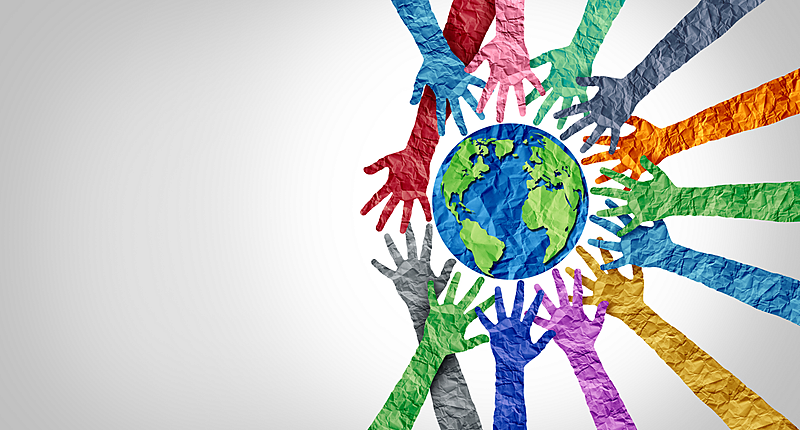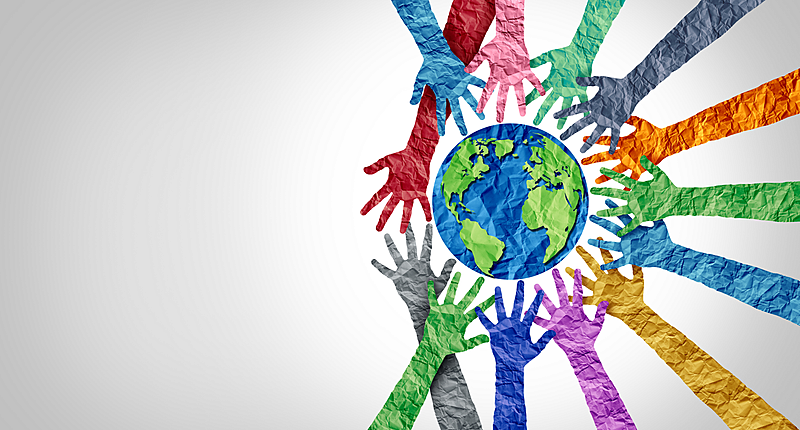

There is no better time to improve your Cultural Intelligence (CQ), than now. As society evolves and inclusion becomes more essential in all areas, this is an element one must have.
What is Cultural Intelligence (CQ) ?
Cultural Intelligence is effectively navigating and thriving in multiple cultural settings. It refers to an individual’s capacity to understand, appreciate, and interact with people from different cultures and backgrounds. It involves understanding and responding to the cultural differences between people, such as language, behavior, beliefs, and values.
Cultural intelligence is essential in today’s globalized world, where it is increasingly important to collaborate and communicate with people from different cultures and backgrounds. Today's globalized world is changing how people interact in various ways. Technology has expanded our ability to communicate with people from other countries, customs and cultures which can lead to a deeper understanding of different perspectives. These global conversations have made us more aware of the challenges that exist in different parts of the world, allowing us to participate in global activism and aid people across country lines. Global business dealings have led to an increased need for international collaboration across borders and as such businesses must learn and understand how to interact with and respect people from different cultures and nations. Cultural competence is essential in this process, but cultural intelligence must be used to truly develop and thrive in these interconnected relationships.
Organizations and individuals must understand how to best serve and interact with people from different cultures as the world becomes increasingly diverse. Cultural competence is essential in this process, but more is needed. A deeper level of understanding is required for accurate cultural intelligence. A trauma-informed approach can help individuals and organizations develop this understanding and move beyond cultural competence.
Cultural competence has evolved over the past few decades and is now widely accepted as an essential part of social work. Cultural competence is interacting with people from various cultural backgrounds respectfully and knowledgeably. However, cultural competence only guarantees that people from different cultures will be treated equally. Cultural intelligence is a more advanced level of understanding that focuses on functionality. It involves being able to recognize and appreciate cultural differences while also being able to interact with people from different backgrounds in a meaningful and productive way.
Cultural competence is an essential concept in today’s increasingly diverse world. It involves understanding and respecting different cultures and interacting comfortably with people from different backgrounds. However, many people are still struggling to achieve a basic level of cultural competence. To truly become inclusive, people must go beyond cultural competence and strive to be more understanding and open-minded.

One way to move beyond cultural competence is to seek diverse perspectives actively. This means taking the time to listen to and learn from people from different backgrounds. It’s important to remember that everyone has unique experiences and perspectives and should be respected. People should also be willing to challenge their beliefs and be open to new ideas.
Another way to become more inclusive is to recognize and address implicit biases. This means being aware of our prejudices and ideas about different cultures and actively working to combat them. People should also be mindful of how others may perceive their actions, words, and behaviors.
In addition, people must be willing to accept and embrace diversity. This means understanding that people from different backgrounds may have different beliefs, values, and experiences. It is not just about people’s racial and ethnic identity; it extends beyond these variables. Therefore, it’s essential to recognize that diversity adds richness and complexity to our lives and can lead to greater understanding and empathy.
To enhance the development of Cultural Intelligence, we must add a Trauma-Informed lens. Trauma-informed care recognizes that trauma can profoundly impact how individuals and communities interact with each other. It also acknowledges that individuals and organizations need to be aware of the potential for trauma when interacting with people from different backgrounds.
A trauma-informed approach has six component:
- Safety: The ability to recognize, reduce, and manage feelings of fear, anxiety, and distress related to trauma.
- Trustworthiness and Transparency: Establishing trust through open communication, honesty, and consistency in interactions.
- Peer Support: Building relationships with peers who share similar experiences and can provide support, validation, and understanding.
- Collaboration and Mutual Respect: Working with individuals in a way that honors their strengths and preferences.
- Empowerment, Voice, and Choice: Encouraging individuals to make informed decisions and participate meaningfully in their care.
- Cultural, Historical, and Gender Issues: Acknowledging the impact of culture, history, and gender on an individual’s experience of trauma and recovery.
Through a trauma-informed approach, individuals and organizations can develop an understanding of culture and cultural differences. This includes learning about different cultural groups’ histories, values, and beliefs. It also involves recognizing each culture's unique strengths and challenges and appreciating and respecting those differences. This can help create a more diverse and inclusive environment where everyone feels respected and valued.
Finally, a trauma-informed approach encourages open dialogue between individuals and organizations from different backgrounds. This dialogue can create a more inclusive environment and bridge any cultural divides. A trauma-informed approach to cultural intelligence can help individuals and organizations better serve and interact with people from different backgrounds. Providing equitable access to services and creating a more inclusive society is essential. Organizations and individuals should strive to develop a deeper understanding of culture and cultural differences to create a more equitable and inclusive world.

